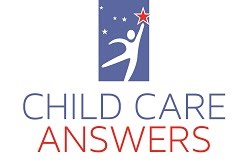Infections in early child care can lead to fewer absences in mainstream school
Parents and child care experts will probably not be at all surprised to learn that a recent report in a scientific journal confirms that children under the age of 2½, who attend large group care settings, are more likely to develop respiratory and ear infections than those who don't.
Furthermore, those children who do attend these settings are less likely to suffer such illnesses once they begin mainstream school.
The report in the December issue of the US journal Archives of Pediatrics & Adolescent Medicine was the result of an eight-year study carried out by Dr Sylvana M. Côté of Ste-Justine Hospital and the University of Montreal in Quebec.
It had been accepted that preschool children, especially those who were placed in large group childcare settings, experienced more frequent infections than children who were cared for primarily at home. This had raised concerns that group care could compromise young children's health and the health of their community, but few studies have examined the impact of group childcare on infections beyond preschool years.
Dr Côté and her colleagues studied 1,238 families with children born in 1998. These children fell into three groups;
1. those in a large childcare setting – where professional educators care for up to 10 groups of eight to 12 children;
2. those in a small childcare setting – home based centres where a childminder cares for between three and eight children;
3. those who were cared for at home.
For eight years the researchers obtained regular information about how often the children had respiratory tract infections, ear infections or gastrointestinal infections during three specific periods: early preschool (under the age of 2½), late preschool (ages 3½ to 4½) and early mainstream school (ages 5 to 8).
It was found that children who attended large group care settings before the age of 2½ and during the late preschool period had higher rates of respiratory infections and ear infections than those who were cared for at home, but once children started mainstream school, these infections tailed off.
Children who started in a small childcare setting and never attended a larger setting did not have any differences in infection risk. Those who were first cared for at home, but then started at any size childcare setting during the late preschool period had a higher risk of ear infections at that time, but no other differences in infection risk.
Group childcare was not associated with gastrointestinal infections at any period in the children's development.
The authors feel that this study involving so many children over an extended eight-year period, should provide reassuring evidence for parents that their choices regarding childcare should not have any major effect on the health of their children, as far as respiratory tract infections with fever, gastrointestinal infections and ear infections are concerned.
Furthermore, children who join large-group childcare settings at a very early age (under the age of 2½) may even gain a level of protection that will result in fewer absences when they come to begin mainstream school.
Author : Michael Evans
© The Earth Times
5 years ago









No comments:
Post a Comment